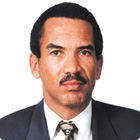Botswana's President: Alcohol a great obstacle to HIV/AIDS prevention
“The continued abuse of alcohol is one of the greatest obstacles to Botswana’s Vision 2016 ideal of an HIV free nation by 2016”. This was said by President Ian Khama speaking at a World Aids Day commemoration in of Botswana.
President Khama said, according to the Sunday Standard, that it would be irresponsible of him not to take a firm and clear position against alcohol consumption in his country. “Citizens of this country must not cut short their days on earth through irresponsible drinking. Risky behaviours can only give short-lived satisfaction but at a great cost – death,” he said. It has been concluded that alcohol and drug abusers are at greater risk of engaging in unprotected sex, more likely with multiple concurrent partners.
Khama said that Botswana must adopt HIV prevention strategies that will integrate alcohol and substance abuse into the national response because “such irresponsible behaviour exacerbates the HIV/Aids situation”. He urged all Batswana to embrace and implement behavioural change, urging them to innovate around their diverse cultures to change behaviour and prevent new infections. “I reiterate the message that prevention is our priority,” he said.
See article in Sunday Standard here.
The President of Botswana has on several occasions brought up the issue of alcohol use as a threat to development and welfare in his country. In his State of the Nation Address to the Parliament on the 3rd of November president Khama underlined that “there is a recognised link between excessive alcohol use and risky behaviour that contributes to the spread of the virus. We are aware of the role substance abuse plays in treatment default for other illnesses such as TB.
He continued by pointing to the wide range of additional maladies connected to alcohol use; from carnage on the roads to low levels of productivity and injuries at the workplace; from the occurrence of Foetal Alcohol Syndrome and other health complications to violent crimes, such as assaults, rapes, robberies and murder, as well as spouse and child abuse.
“As a society, we can no longer pretend that there is little that can be done to curb such ravages. This is why Government, in line with the World Health Organisation and guided by international best practice, has adopted a multi-faceted approach to the problem, whose key components include:
- A National Policy or Strategy on Alcohol;
- Public Education Campaigns on the dangers of underage and excessive alcohol consumption, as well as consumption during pregnancy or whilst on medication;
- Enhanced law enforcement;
- Reduction in the hours of sale of alcohol;
- and This month's introduction of a 30% levy on alcoholic beverages.
The Government of Botswana earlier this year decided to introduce such a 30% levy on alcoholic beverages, but the action was temporarily suspended because of a complaint to the High Court by Kgalagadi Breweries and Botswana Breweries. In middle of October this complaint to the High Court was withdrawn by the breweries, and the new levy came into effect as of 1st of November this year.
The 30% levy on alcoholic beverages will be used to support, among other things, the funding of public education and rehabilitation programmes, as well as law enforcement measures to combat alcohol abuse. In a press release from President Ian Khama’s office on the 17th October the new levy is commented as follows: “The imposition of the levy is in line with Government's decision to adopt a holistic approach to the challenge of substance abuse in Botswana, which is consistent with World Health Organisation guidelines and International Best practice.
In this respect a National Strategic Framework for Combating Alcohol Abuse in being implemented, whose key additional elements include:
- Stepped up public education and awareness campaigns on the harm of alcohol abuse;
- In school programmes to better inform young people about the dangers of substance abuse;
- Proactive efforts to promote alcohol free youth activities through sports and entertainment;
- Limiting the role of marketing and advertising of alcohol in sports activities;
- More vigorous law enforcement measures, with a particular and immediate emphasis on curbing drunken driving;
- Enforcement of laws governing the sale of alcohol.
The above measures are consistent with recognition by Government and other stakeholders that alcohol and other forms of substance abuse contribute to a wide range of anti-social, risky and criminal behaviours in society including child abuse, violence against women and homicides, as well as death on our roads.”

